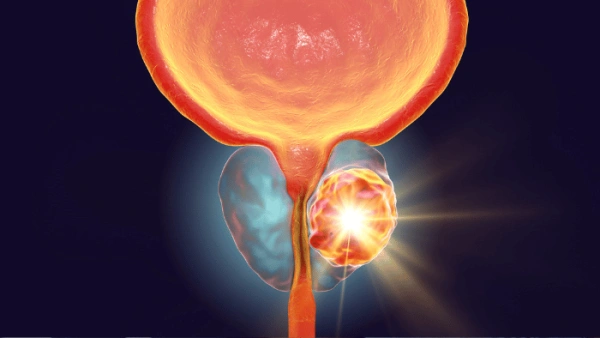
Noninvasive urine test enhances early detection of bladder cancer in patients with hematuria
Source:news-medical.net
مدت زمان تمرین این بخش: 45 دقیقه
Paragraph 1
One of the first signs of bladder cancer can be blood in the urine (hematuria). Investigators developed and analyzed the results of a streamlined and simplified DNA-based urine test to improve the accuracy of early detection of bladder cancer in patients with hematuria. They report in The Journal of Molecular Diagnostics, published by Elsevier, that this noninvasive test provides more accurate and earlier detection of bladder cancer, potentially reducing the need to refer patients for more invasive cystoscopy.
Simplified:
Bladder cancer can show up first with blood in urine (hematuria). Researchers made a simpler DNA-based urine test to find bladder cancer earlier and more accurately in people with hematuria. They found this test in The Journal of Molecular Diagnostics, which could reduce the need for invasive cystoscopy.
Paragraph 2
Lead investigator Sungwhan An, PhD, Genomictree, Inc., Daejeon, South Korea, and Promis Diagnostics, Inc., Irvine, CA, USA, explains, “Despite recommendations for cystoscopy examination in patients presenting with microscopic and gross hematuria, the diagnostic yield of bladder cancer in this group ranges from 2% to 20%, leading to numerous unnecessary procedures. Moreover, due to the invasive nature of cystoscopy and low patient compliance, many hematuria patients, particularly microhematuria patients, are not promptly referred for examination, resulting in missed opportunities for early bladder cancer detection and subsequent diagnosis at advanced stages, leading to both physical and economic burdens.”
Simplified:
Lead researcher Sungwhan An, PhD, from Genomictree, Inc., Daejeon, South Korea, and Promis Diagnostics, Inc., Irvine, CA, USA, said, “Even though cystoscopy is recommended for hematuria patients, it only finds bladder cancer in 2% to 20% of cases. This leads to many unnecessary procedures. Also, because cystoscopy is invasive and some patients don’t like it, especially those with mild hematuria, they might not get checked soon enough. This delays finding bladder cancer early, making it harder to treat and costing more for healthcare.”
Paragraph 3
Aberrant DNA methylation has long been recognized as a promising diagnostic biomarker in various cancer types, including bladder cancer. Therefore, to improve bladder cancer detection accuracy using urine cytology, Dr. An and co-investigators had previously developed a novel molecular diagnostic tool to measure proenkephalin (PENK) methylation levels using two steps of real-time PCR in urine DNA to detect primary bladder cancer in patients with hematuria.
Simplified:
Scientists have known that abnormal DNA changes (methylation) can help find cancers, including bladder cancer. Dr. An and colleagues previously made a new test to measure methylation of proenkephalin (PENK) in urine DNA using real-time PCR to find bladder cancer early in hematuria patients.
Paragraph 4
They have now streamlined and optimized EarlyTect the entire process, integrating the previous two-step process into a one-step procedure incorporating two reactions of linear target enrichment (LTE) and quantitative methylation-specific PCR (qMSP) conducted via real-time PCR within a closed-single tube system: EarlyTect Bladder Cancer Detection (BCD).
Simplified:
Now, they made the process simpler, combining two steps into one for their test called EarlyTect Bladder Cancer Detection (BCD). This uses real-time PCR in one tube to enrich the target and measure methylation.
Paragraph 5
Investigators tested the sensitivity and specificity of EarlyTect BCD, a single biomarker test. Results were comparable to or even better than the reported performance of other multi-biomarker tests. In a retrospective training set (105 patients), an optimal cutoff value was determined to distinguish bladder cancer from non-bladder cancer, resulting in a sensitivity of 87.3% and a specificity of 95.2%. In a prospective validation set of 210 patients (122 Korean and 88 American), the overall sensitivity for detecting all stages of bladder cancer was 81.0% with a high negative predictive value of 97.7% for distinguishing hematuria patients without bladder cancer. There was no significant difference between the two groups.
Simplified:
They tested EarlyTect BCD on 105 patients first, finding it had 87.3% sensitivity and 95.2% specificity to spot bladder cancer. In a larger group of 210 patients (from Korea and the USA), the test found bladder cancer with 81.0% sensitivity and could accurately tell who didn’t have bladder cancer with 97.7% accuracy.
